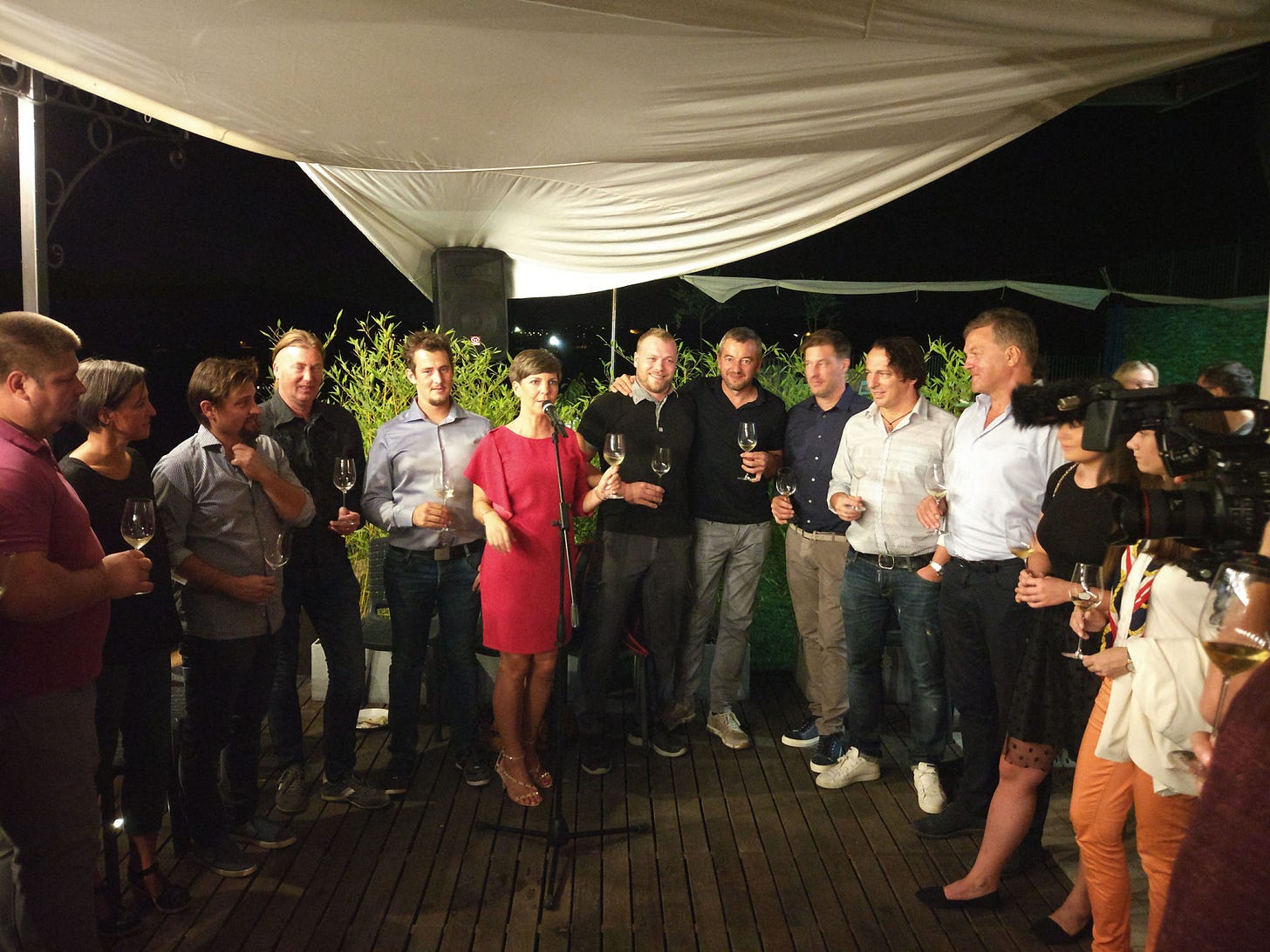Macerated highlights from the Brda 2nd International Rebula Masterclass
A report on the 2nd iteration of the world's premier Rebula-fest
Despite the ever-increasing interest in its output, Slovenia still lacks a nationwide promotional body that is purely focused on wine - the task currently falls to the Slovenian Tourist Board, which tends to focus more on gastronomy. There's no equivalent to Austria's peerless Wine Marketing Board, nor directly to Italy's consorzios or Germany's VDP. So it's extremely heartening to see more promotional activity celebrating what should rightfully be regarded as one of Europe's great wine nations. A recent and promising development has been the inauguration of the Brda International Rebula Masterclass - a day of talks and tastings focused around the Rebula grape variety, which certainly has the longest documented history in the Brda/Collio region, hence the tag-line "Brda home of Rebula".
The event's second edition took place in August 2018 at the grand Vila Vipolže, showcasing the wines of 13 participating producers to an impressive group of some 50 international and domestic journalist…
Keep reading with a 7-day free trial
Subscribe to The Morning Claret to keep reading this post and get 7 days of free access to the full post archives.





